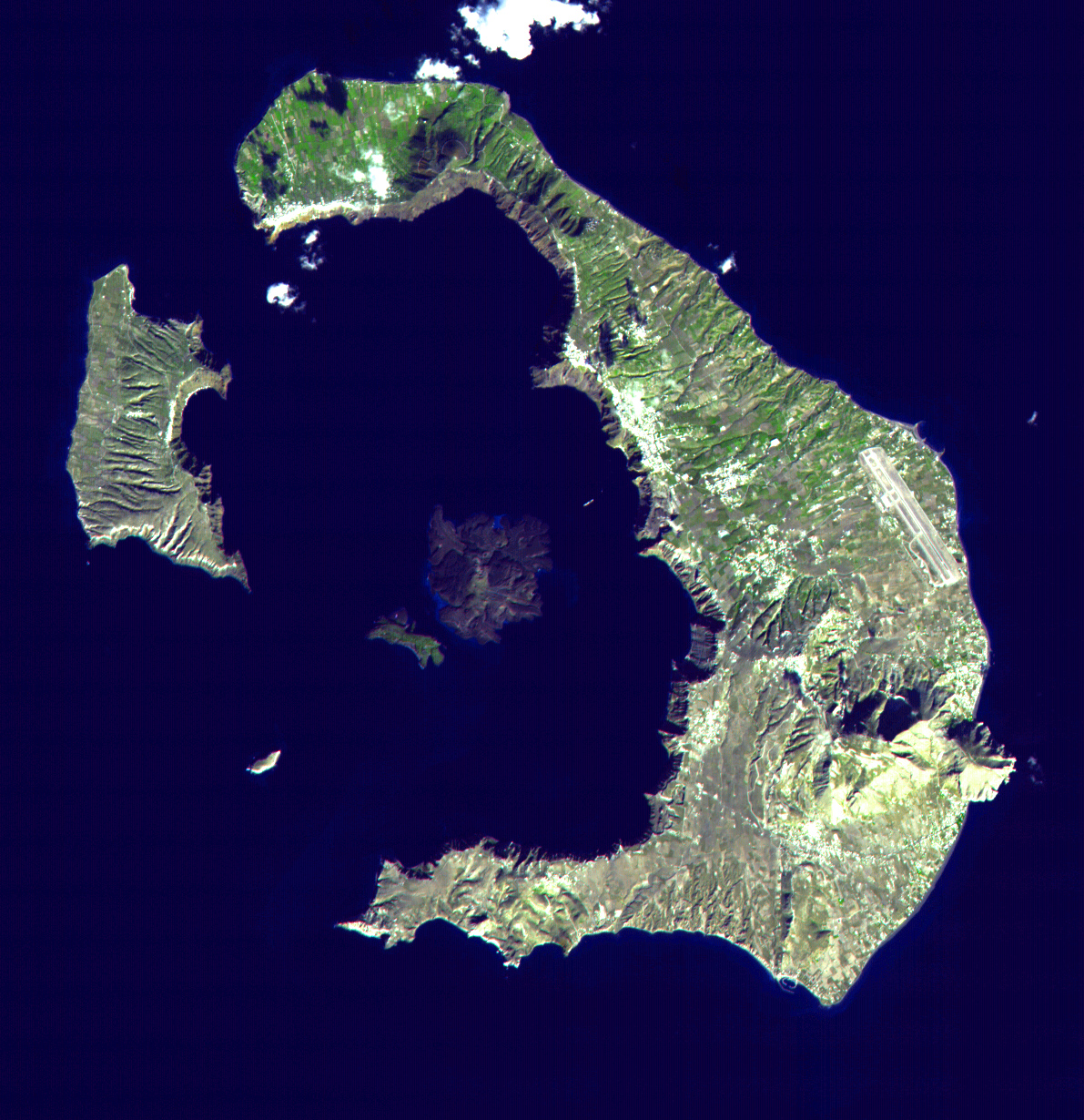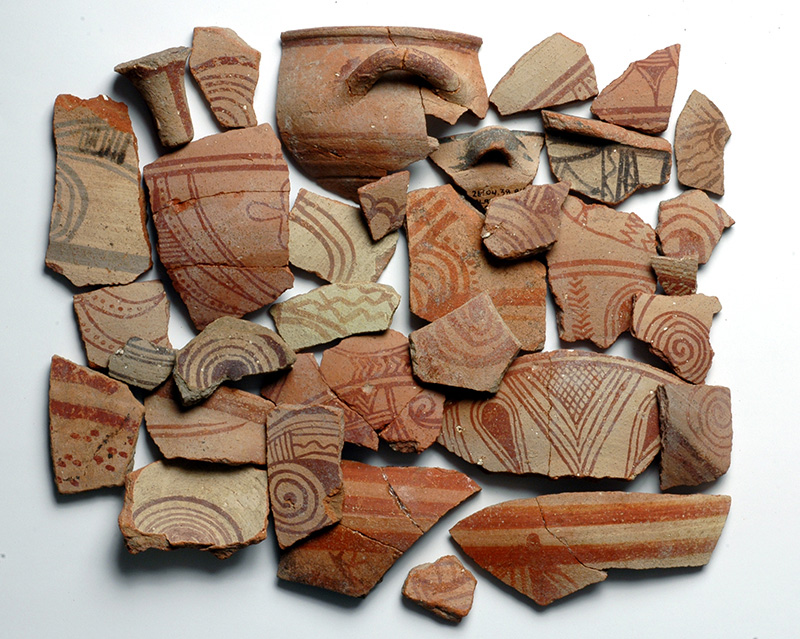I need some help here! Does anybody have knowledge of the Bible’s timeline of Exodus and Egyptian chronology? The dates Egyptologists give don’t line up with the Bible. Is the Bible wrong or were the Egyptians wrong and please give the reasons why or links to those reasons.
I have also researched much of this extensively, using several alternative sources that contradict much of the traditional narrative. Getting into the weeds of why Jerusalem was destroyed in 586 or 587 BC, or David's reign beginning in 1022 or 1010 BC is either going to drive you crazy if you're not seriously into ancient history, or if you are it will lead you into several years of your own research to come up with probably another timeline. I have my own spreadsheets and charts as well.
The problem I see with a many researchers (including a couple in this thread) is that you cannot line up traditional Egyptology with traditional Christian chronology. Therefore if you line up the literal Biblical reading and come up with Thutmose III or Ramesses II or Ahmose I using logical and mostly legitimate sources, you then have to contend with the fact that the rest of Egyptian history takes you back 1000 years before the flood. (Or about 700-800 if you only take the dynastic period) So historians will either push the Bible is legendary or incomplete path, or theologians that the Egyptian historical narrative is wrong path. (Or some combination of the two) Note also that I am for the moment ignoring the 3 million year old Lucy or Australopithecus fossil remains believed to be the origin of man.
If you match the order of the Bible with the order of history, you can match up the periods much better if you aren't trying to align every date to the year. Most historians start with a known event and use relative references to move backwards. If you start from Creation and move forward and match clues from the Bible to those from anthropology a different picture emerges.
Stone Age (3.4 million years ago) = Antediluvian Age (4000 BC or 5500 BC (MAS vs. LXX))
- How are you going to reconcile 3 million years? You can't, but read up on how they time the Paleolithic/Mesolithic/Neolithic ages, and you see it's based on cultural and tool advancements, not on dates. (Also try to find an article from Raul Lopez in the journal of creation from 12/1998 to reconcile the extreme reign lengths on the Sumerian king lists for kings before the flood.)
Early Bronze Age = Babel/Nimrod = Sumerian/Mesopotamian empire
- You can't get agreement on the origin of languages, but you can find plenty of archaeological studies on ziggurats and other structures of this period. You can also find historical evidence for a most of the cultures and cities mentioned, and plenty of speculation on ones that aren't confirmed. Egypt (the Greek form of Mizraim) is the patriarch of Egypt and the grandson of Noah. He was probably born within a few years of the flood. Egypt cannot exist before this point. (Except as Stone Age prehistory)
Kudur-lagamar (king of Elam) = Chedorlaomer (encountered by Abraham)
- Look for information on the Spartoli tablets
Abraham in Egypt
- Only about 360 years after the flood. (Arpachshad lived 438 years, so Mizraim could still be alive as well, though if he was Menes, he was killed by a Hippopotamus according to Egyptian lore.) A widely discredited Jewish book (probably Midrash) called Jasher claims the king was Osiris, son of Anom (possibly Anamim from Genesis 10:13). Ancient Egyptians from a period encompassing at least from the 11th to the 26th dynasty believed that the tomb of Djer (3rd king of the first dynasty) was that of Osiris. (Either the natives were wrong, or the two kings are one and the same by different names)
Joseph in Egypt
- Some equate Joseph to Imhotep of the 3rd dynasty; however, this is unlikely due to what is known about his religious beliefs. (Not for the timeline; however, which fits very well.) A better candidate is Ptah-hotep who was vizier in the 5th dynasty's reign of Djedkare Isesi, and his son Unas. He created a papyrus scroll called "The Maxims of Ptah-hotep", for which translations are readily available online, and are much more like what you would expect to be written by the Biblical Joseph.
Moses in Egypt
- Moses was an adopted prince in Egypt, but had to flee to Midian after he killed a slavemaster mistreating an Israelite. God called him back after that king died. (Exodus 4:19) He was Midian 40 years, so it must be a Pharaoh who ruled 40 years or longer. The king who succeeds him only rules a short time after being confronted by Moses, and afterwards Egypt as a power is decimated by the aftermath of the 10 plagues. This leaves only:
1.) 6th dynasty - Pepi II (oppression) / Merenre II (exodus) / 1st Intermediate Period
2.) 12th dynasty - Amenemhat III (oppression) / Amenemhad IV (exodus) / 2nd Intermediate Period
3.) 15th dynasty - Apophis (oppression) / Khamudi (exodus) / End of Hyksos dynasty
#3 works best when counting the chronology backwards from the Babylon conquest, but you need to read the Judges in literal sequence, which commentators don't like to do, because it is 100 years longer than 1 Kings 6:1. #1 works best when counting forward from the Genesis flood, but for this to work, you need two dynasties to be ruling in parallel with the other four, one ruling from lower Egypt and one from Upper Egypt.
But since we start with an 800 year discrepancy, I think both of these tweaks are justified. Still, a couple of others are required to fill the gap. There are two books, one by Peter James "Centuries of Darkness", and the other by David Rohl "Pharaohs and Kings: A Biblical Quest". Both demonstrate convincingly that the Third Intermediate period in Egypt had competing dynasties and should be shortened by about 250 years.
Another necessary adjustment is that the first and second intermediate period were one and the same. This was first proposed by Donovan Courville in "The Exodus Problem and its Ramifications". The justification is lengthy, but generally speaking, the 5th and 6th dynasty in almost every respect is like the 11th and 12th dynasty. The 7th - 10th dynasty is very chaotic and very little is known about it. This is very much like the 13th dynasty. To believe conventional history, the Egyptian empire rose to be the most powerful nation on earth with pyramids and monuments everywhere to their greatness, descended into chaos, rose again and started building pyramids again, descended into chaos again and was conquered with little resistance by Asian invaders. (Note that Psalms 105:30 refers to Egyptian kings in the plural)
Note that for four hundred years after the Exodus in the Bible, the Egyptians are never mentioned except for religious nostalgia. That absence is not going to happen in the 18th or 19th dynasty.
Furthermore, if you move the exodus to the end of the early Bronze Age, then the conquest of Canaan, which was destroyed at this time makes sense as well, since the entire region changed from a collection of powerful city-states to farming communities which would be historically unique without a conquest.
Then the middle Bronze Age corresponds to the judges period, and in Egypt the Hyksos period.
The Late Bronze Age corresponds to the early monarchy including Solomon's kingdom. Egypt is on the rise as well, but is initially allied with Solomon (1 Kings 3:1), possibly Thutmose I (Courville) or Haremheb (Rohl). Then a later Pharaoh (Shishak in the Bible) instigates a civil war in Israel (when it splits from Judah) and later sacks Jerusalem. Egypt is on the rise, and Israel/Judah begin a punctuated decline.
The rest of the Israel/Egypt correlations are not controversial:
Osorkon IV (2 Kings 17:4 - King So)
Taharqa (2 Kings 19:9 - King Tirhakah, King of Ethiopia - Egypt's 25th dynasty)
Necho II (2 Kings 23:29-35 - Pharoah Necho)
Apries (Jeremiah 44:30 - Pharoah Hophra)
So I believe you can line up Egypt with the Bible, but it is difficult and whatever you come up with is going to be a minority argument, simply because of the poor assumptions that have prevailed for the last 150 years.





